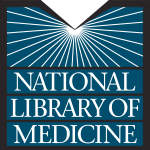- Branża: Library & information science
- Number of terms: 152252
- Number of blossaries: 0
- Company Profile:
The National Library of Medicine (NLM), on the campus of the National Institutes of Health in Bethesda, Maryland, is the world's largest medical library. The Library collects materials and provides information and research services in all areas of biomedicine and health care.
The removal of a carboxyl group, usually in the form of carbon dioxide, from a chemical compound.
Industry:Medical
Either of a pair of masses of nerve tissue which lie beneath and external to the anterior cornua of the lateral ventricles of the brain and form part of their floor and each of which contains a caudate nucleus and a lentiform nucleus separated by sheets of white matter to give the mass a striated appearance in section.
Industry:Medical
Term used to denote an abnormal chromosome consisting of segments from two or more chromosomes joined together as the result of a translocation, insertion, or other rearrangement.
Industry:Medical
1) A method employed to determine differences in amino acid sequences between related proteins; relies upon the presence of a simple tandem-repetitive sequences that are scattered throughout the human genome.
2) A technique used especially for identification (as for forensic purposes) by extracting and identifying the base-pair pattern of an individual's DNA -- called also DNA typing, genetic fingerprinting.
3) DNA fingerprinting is a laboratory technique used to establish a link between biological evidence and a suspect in a criminal investigation. A DNA sample taken from a crime scene is compared with a DNA sample from a suspect. If the two DNA profiles are a match, then the evidence came from that suspect. Conversely, if the two DNA profiles do not match, then the evidence cannot have come from the suspect. DNA fingerprinting is also used to establish paternity.
Industry:Medical
A crosswise connecting part (as an atom or group) that connects parallel chains in a complex chemical molecule (as a protein).
Industry:Medical
An amino acid (C<sub>6</sub>H<sub>12</sub>N<sub>2</sub>O<sub>4</sub>S<sub>2</sub>) that is a dimer of cysteine, is widespread in proteins (as keratins), and is a major metabolic sulfur source.
Industry:Medical
The reconstruction of a continuous two-stranded DNA molecule without mismatch from a molecule which contained damaged regions. The major repair mechanisms are excision repair, in which defective regions in one strand are excised and resynthesized using the complementary base pairing information in the intact strand; photoreactivation repair, in which the lethal and mutagenic effects of ultraviolet light are eliminated; and post-replication repair, in which the primary lesions are not repaired, but the gaps in one daughter duplex are filled in by incorporation of portions of the other (undamaged) daughter duplex. Excision repair and post-replication repair are sometimes referred to as "dark repair" because they do not require light.
Industry:Medical
